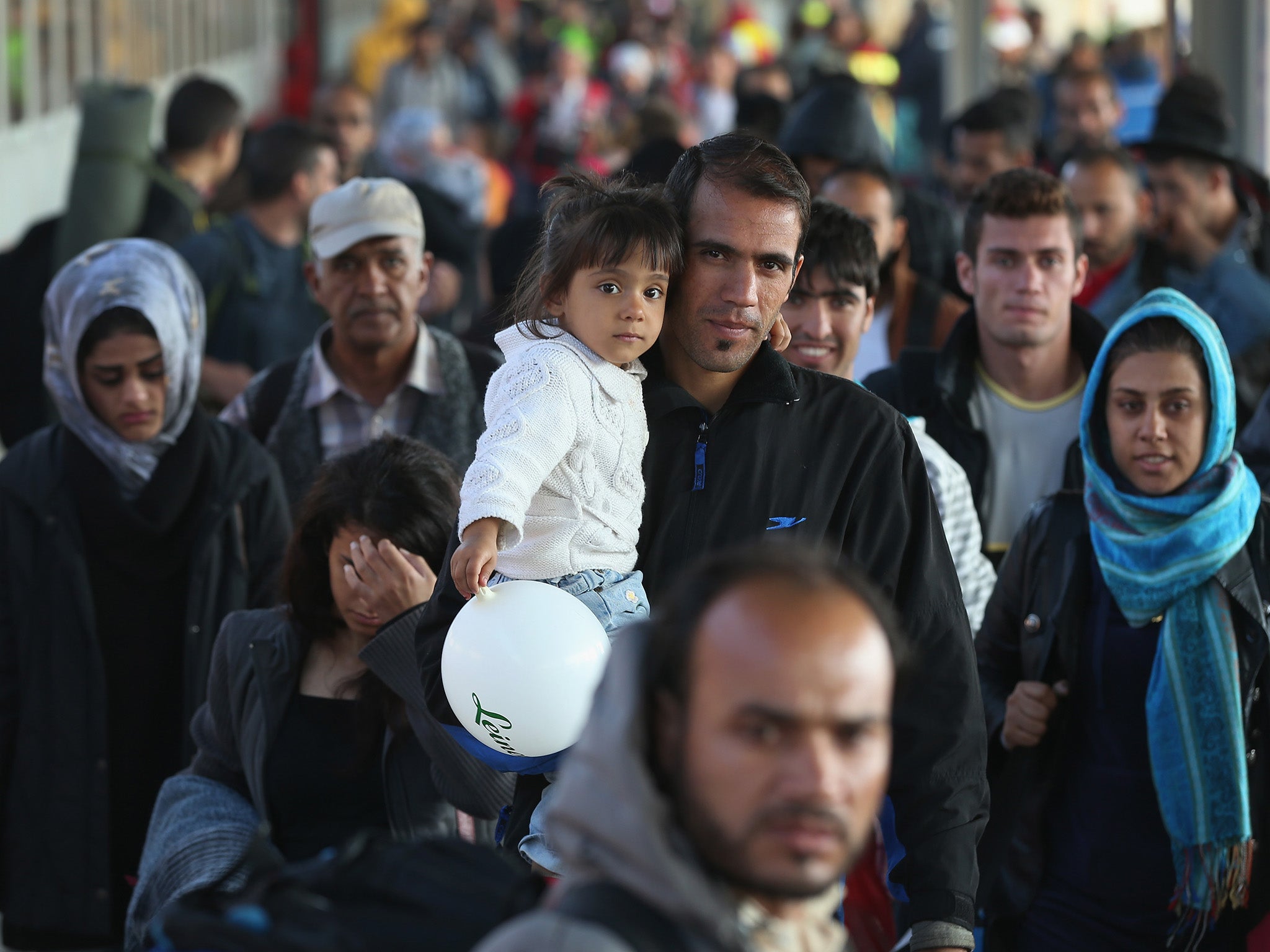Thousands of refugees successfully sue German government over partial asylum status
Around 90 per cent of the appeals against 'subsidiary protection' orders have been successful

Your support helps us to tell the story
From reproductive rights to climate change to Big Tech, The Independent is on the ground when the story is developing. Whether it's investigating the financials of Elon Musk's pro-Trump PAC or producing our latest documentary, 'The A Word', which shines a light on the American women fighting for reproductive rights, we know how important it is to parse out the facts from the messaging.
At such a critical moment in US history, we need reporters on the ground. Your donation allows us to keep sending journalists to speak to both sides of the story.
The Independent is trusted by Americans across the entire political spectrum. And unlike many other quality news outlets, we choose not to lock Americans out of our reporting and analysis with paywalls. We believe quality journalism should be available to everyone, paid for by those who can afford it.
Your support makes all the difference.More than 17,000 refugees in Germany have sued the government for not giving them full refugee status - and most have won.
Since an attempted crackdown on the number of migrants coming to the country earlier this year more and more refugees are being given a qualified form of asylum called as “subsidiary protection” from the Federal Office for Migration and Refugees (BAMF).
Although people with this status are safe from deportation they face several key disadvantages in comparison to those with full refugee status.
These include a two-year ban on their families coming to join them and a speed up deportation process for those who are not given a permanent right to remain agreed at the end of January.
It followed a major backlash towards Chancellor Angela Merkel’s “open door” policy which saw 1.1m refugees arriving in the country in 2015.
A mass sex attack against women in Cologne during the city’s New Years Eve celebrations which blamed on refugees – even though only three of the 58 men arrested where recent asylum seekers from Syria or Iraq – prompted a sustained growth in support for far-right anti-immigration parties.
One such party, Alternative Für Deutschland, triumphed in the Berlin local elections last month by winning enough votes to enter the state parliament for the first time – their 10th regional parliament since the party formed in 2013.
The party’s leader has previously called for refugees to be shot if they try to cross the border.
But in the first eight months of this year 90 per cent of refugees who challenged their new limited status in Germany’s administrative courts have won full protection, German newspaper Süddeutsche Zeitung reported.
The majority of these refugees – around 15,000 – have been Syrian.
Before March this year German authorities processed Syrian asylum claims speedily by offering them full protection en masse.
But since March, Syrians have had to apply for asylum individually – a process which is far more time consuming and bureaucratic – and around 60 per cent only received subsidiary protection.
Die Linke MP Ulla Jelpke said the BAMF’s attitude was “an intentional strategy of disenfranchisement and deterrence which sacrifices humanity” but the Interior Ministry rejected the accusation that it had put pressure on the body to reject refugees.
A spokesman said many do not full the criteria of facing possible persecution in their home country to qualify as a refugee under the UN’s convention.
Join our commenting forum
Join thought-provoking conversations, follow other Independent readers and see their replies
Comments